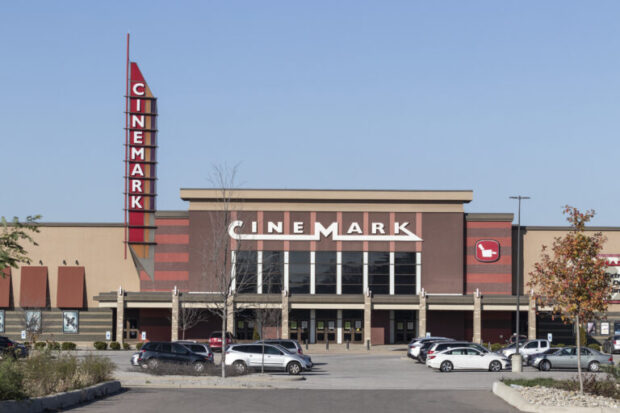A federal judge in Sherman, Texas on Wednesday ruled against an insurer that sought to dismiss a $500 million COVID-19 business-interruption lawsuit by the nation’s third-largest chain of movie theaters.
The decision broke a month’s-long losing streak for policyholders seeking cover for income lost because of pandemic-related restrictions.
U.S. District Court Judge Amos L. Mazzant found that Cinemark Holdings had aptly pleaded that the coronavirus was actually present on its properties and caused damages, noting that more than 1,700 of its employees had tested positive for COVID-19.
Mazzant said in his opinion that the facts were very different in another COVID-19 claim that was dismissed by the Eastern District of Texas in March, where property owner Selery Fulfillment made no allegation that the virus was actually present.
“Cinemark’s policy is much broader than the one in Selery and expressly covers loss and damage caused by ‘communicable disease,'” Mazzant wrote. “Both parties agree ‘communicable disease’ encompasses COVID-19. At this stage of the proceedings, Selery is distinguishable.”

The plaintiff’s attorney, partner Michael S. Levine with Hunton Andrews Kurth in Washington, D.C., said in an email that there would be more favorable rulings for property owners if more judges followed the rules of federal civil procedure. He said Mazzant considered Cinemark’s actual allegations and the specific policy wording.
“Too many courts are overlooking this fundamental duty at the carriers urging to simply follow decisions, which happen to be factually and materially distinguishable,” he said.
Mazzant’s ruling was the first of any state or federal judge since March 31 that rejected in whole an insurer’s motion to dismiss a COVID-19 business-interruption lawsuit, according to a litigation tracker maintained by the University of Pennsylvania’s Carey Law School. During that time, two judges granted partial dismissal and 48 judges fully dismissed COVID-19 lawsuits or granted summary judgment for the insurer.
Cinemark, headquartered in Plano, Texas, operates 332 theaters with 4,522 screens in 42 states and an additional 200 theaters in 17 other countries, according to its civil complaint. The chain purchased a policy from FM Global that covered up to $500 million in damages from “all risks of physical loss or damage” except perils specifically excluded. Communicable diseases were a covered cause of loss.
“Given the number of theaters affected, you can reasonably assume the damages will exceed policy limits,” Levine said.
Cinemark had to shut down its theaters worldwide because of the virus. It notified FM Global that it was suffering losses because of those shutdowns on April, 20, 2020. The insurer requested more information about the scope of those losses but did not acknowledge that any coverage applied. The movie chain filed a lawsuit in January.
FM Global filed a motion for summary judgment against Cinemark on March 30. The insurer says that the policy expressly excludes damages caused by “contamination.” While the specific inclusion of coverage for “communicable diseases” may create an exception to the exclusion, a sublimit in the policy limits coverage to $1 million, according to the dismissal motion.
Perhaps more importantly, FM Global argued that Cinemark had failed to show that there was any direct physical loss to its property. Actual structural alteration is required to constitute physical loss, the carrier said.
“District courts in Texas have repeatedly and unanimously held that the presence of COVID-19—whether present at a specific insured property or supposedly omnipresent in a general area—is not ‘physical loss or damage’ to property,” FM Global said in its motion.
The Carey Law School litigation tracker doesn’t quite bear out that assertion. A state judge in Dallas and a federal judge for the Western District of Texas denied insurer motions to dismiss, but 16 federal judges did rule in favor of the insurance carrier.
“Hopefully, courts will take heed of Judge Mazzant’s analysis and base future COVID-19 business interruption decisions on the actual facts alleged and the actual insurance wording before the court, as the rules and interpretive case law require,” Levine said. “When they do, the tide will shift substantially.”
Cinemark’s attorney, Thomas H. Cook Jr. of the Zelle law firm in Dallas, did not respond Wednesday to an email seeking comment.
*This story ran previously in our sister publication Claims Journal.





















 New Texas Law Requires Insurers Provide Reason for Declining or Canceling Policies
New Texas Law Requires Insurers Provide Reason for Declining or Canceling Policies  Teens’ First Year on the Road Most Deadly
Teens’ First Year on the Road Most Deadly  The Future of HR Is AI
The Future of HR Is AI  Is Risk the Main Ingredient in Ultra-Processed Food?
Is Risk the Main Ingredient in Ultra-Processed Food? 








